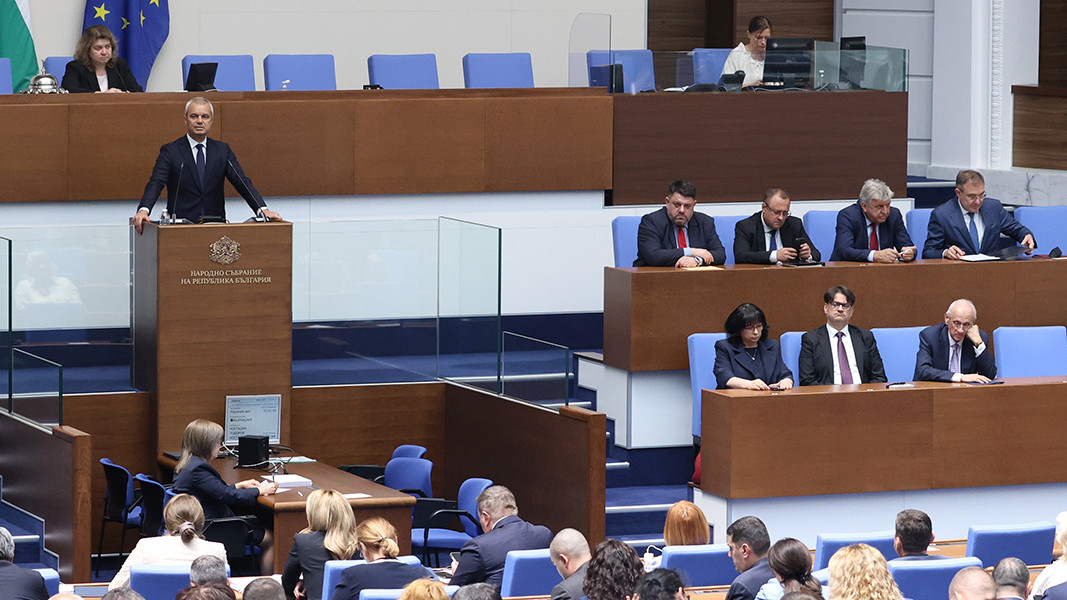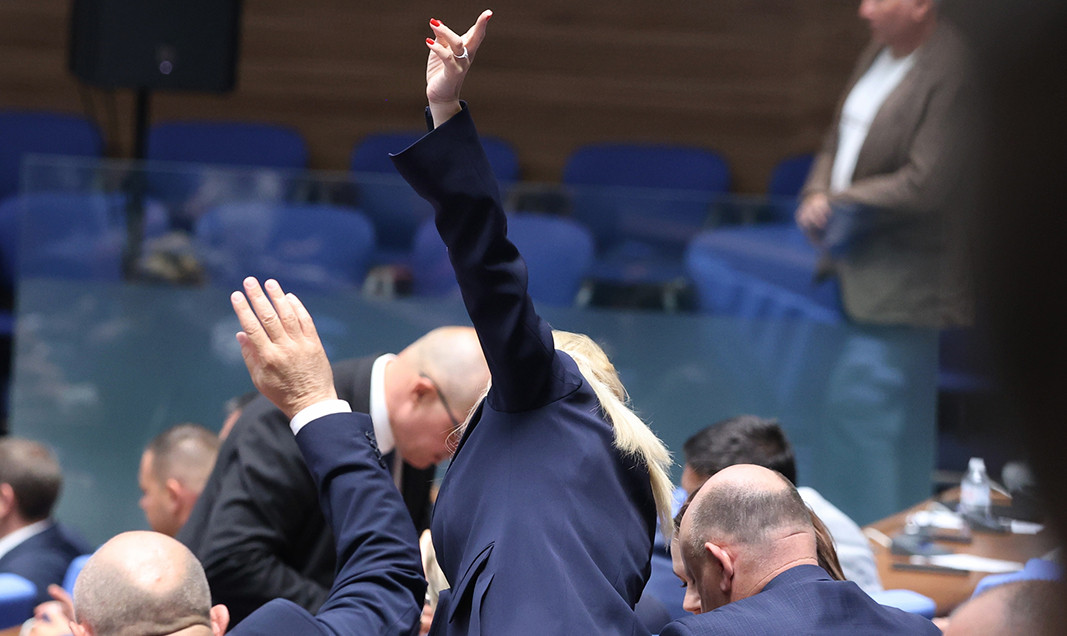At the end of last week, we witnessed the third consecutive failed vote of no confidence against the government of Prime Minister Rosen Zhelyazkov. This time, the motion was initiated by Vazrazhdane (Revival), the third largest parliamentary political force, and was based on ‘failure in fiscal policy’. Despite heated debates in the plenary hall, the result was not encouraging for the opposition: only 54 MPs voted in favour out of a total of 240.
Interestingly, even before the third vote of no confidence was taken, a fourth motion had already been tabled in parliament, since the formation of the Zhelyazkov cabinet. This was initiated by the Velichie (Greatness) party and concerns ‘failure in the field of the environment and water’.
In Bulgaria, political drama and skirmishes in the National Assembly have become normal, everyday occurrences that we have come to accept. However, the debate and vote on the third no-confidence motion took place on 4 July, four days before the European Parliament was due to vote on whether Bulgaria would adopt the euro on 1 January 2026. Could an attempt to bring down the government affect Europe’s final decision, and what message would it send?

“Probably not,” commented Associate Professor Tatyana Burudzhieva, a political scientist and lecturer at Sofia University, as well as a member of the Gallup International Agency team, in an interview with Radio Bulgaria.
“In Europe, of course, everything that happens in our country is taken into account. However, my impression is that the situation is very different from, for example, our accession to Schengen. While that was a Bulgarian national priority which certain countries repeatedly postponed for various reasons, it is now mainly the EU institutions that are driving the effort for Bulgaria to join the eurozone. Public opinion in Bulgaria is, of course, a factor, but unfortunately there is no precedent in Europe for such strategic decisions being influenced by public opinion,” she said.
She gave the following example: ten years ago, a referendum was held in Italy regarding the privatisation of state water resources. Over 80% of those eligible to vote took part, with more than 70% voting against privatisation. However, the government moved in the opposite direction, ignoring the opinion of the Italian people.

Summing up, Burudzhieva said that the no-confidence vote in Bulgaria had the opposite effect to that desired by the opposition: it ended up showing the government to be even more united.
“In votes of no confidence, the opposition must have a clear strategy, rather than simply pursuing quantity and intensity. For me, the problem is that the vote of no confidence is becoming something different from what it is supposed to be: demonstrating the alternative. Unfortunately, this vote showed neither alternative policies nor any guarantee that the opposition can offer corruption-free governance. These votes are turning against the opposition itself, because its inability to present an alternative only demonstrates the government’s stability. This is probably the conclusion that European countries will draw: that despite the tensions, the government is functioning with sufficient stability.”
Does the regular use of a crucial parliamentary procedure, a vote of no confidence, even when it's clear it won't be successful, diminish its importance?
"A vote of no confidence is an extremely important instrument that demonstrates the need for democracy to allow the opposition, even if they are in the minority, to express their views on how the country is governed. I therefore strongly urge politicians to refrain from assessing the value of democratic instruments. Just because the opposition cannot use it effectively does not mean that a vote of no confidence is a waste of time. It only means that those who express such views have nothing to do with democracy or parliamentarism," the political scientist emphasised.

While a third vote of no confidence is unlikely to threaten Bulgaria's adoption of the single European currency on 1 January 2026, the real danger lies in failing to prepare an adequate state budget update in autumn. In other words, if the new data again fails to demonstrate fiscal stability, Bulgaria could face a delay, regardless of Brussels' decision, warns Tatyana Burudzhieva.
First Azeri gas shipment for Ukraine across Bulgaria and Romania Ukraine’s state-owned energy company Naftogaz signed its first agreement with the Azeri state-owned oil and gas corporation SOCAR for the import of natural gas along the Transbalkan..
Diplomatic relations between China and the European Union span over half a century and have delivered substantial economic gains. “Trade between China and Europe has grown from 2.4 billion to almost 786 billion US dollars, with today’s daily volume..
"There was definitely more tension in this session of the European Parliament." This was commented by Angelina Piskova, BNR correspondent for the European institutions during a journalist round table in the programme "Strasbourg Calling" broadcast..

+359 2 9336 661
